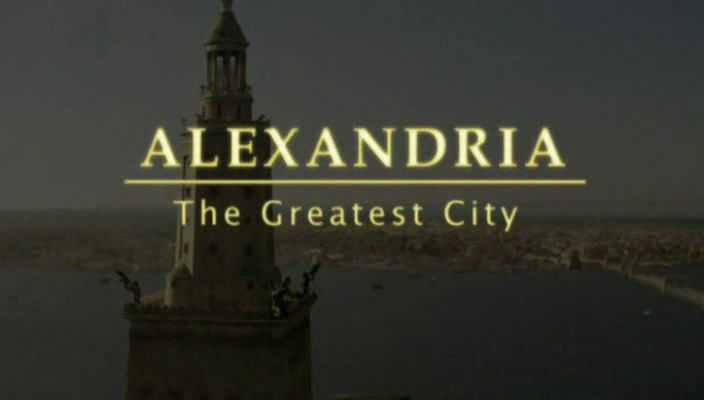The Ancient World episode 1 – Alexandria The Greatest City: Three cities dominated the ancient world: Athens, Rome and a third, now almost forgotten. It lies hidden beneath the waters of the Mediterranean and a sprawling modern metropolis.
Alexandria was a city built on a dream; a place with a very modern mindset, where – as with the worldwide web – one man had a vision that all knowledge on earth could be stored in one place. Bettany Hughes goes in search of this lost civilisation, revealing the story of a city founded out of the desert by Alexander the Great in 331 BC to become the world’s first global centre of culture, into which wealth and knowledge poured from across the world. Until its decline in the fourth and fifth Centuries AD, Alexandria became a crucible of learning; Hughes uncovers the incredible discoveries and the technical achievements of this culture.
The film’s cast of characters reads like a list of the greatest figures of ancient times: political figures like Alexander the Great, Julius Caesar and Cleopatra, and intellectuals including female mathematician, astronomer and philosopher Hypatia, Euclid, Archimedes, Eratosthenes and Ptolemy. At last, after 1,500 years squashed under a modern metropolis, new clues are emerging from the earth to the real nature of this grand experiment in human civilisation.
The Ancient World episode 1 – Alexandria The Greatest City
Historian Bettany Hughes gives her personal take on the diverse cultures of the ancient world in this 2010 documentary series on More 4. The series begins with an examination of Alexandria, the city founded by Alexander the Great in 332 BC to become the world’s first global centre of culture. The programme explores Alexandria’s role as a powerhouse of science and learning, and focuses on the female mathematician, astronomer and philosopher Hypatia, the subject of the feature film Agora, starring Rachel Weisz.
Alexandria The Greatest City
Alexandria was founded in c. 331 BC by Alexander the Great, king of Macedon and leader of the Greek League of Corinth, during his conquest of the Achaemenid Empire. An Egyptian village named Rhacotis existed at the location and grew into the Egyptian quarter of Alexandria. Alexandria grew rapidly to become an important center of Hellenistic civilization and remained the capital of Ptolemaic Egypt and Roman and Byzantine Egypt for almost 1,000 years, until the Muslim conquest of Egypt in AD 641, when a new capital was founded at Fustat (later absorbed into Cairo). Hellenistic Alexandria was best known for the Lighthouse of Alexandria (Pharos), one of the Seven Wonders of the Ancient World; its Great Library (the largest in the ancient world); and the Necropolis, one of the Seven Wonders of the Middle Ages. Alexandria was the intellectual and cultural center of the ancient Mediterranean world for much of the Hellenistic age and late antiquity.[4] It was at one time the largest city in the ancient world before being eventually overtaken by Rome.
The city was a major center of early Christianity and was the center of the Patriarchate of Alexandria, which was one of the major centers of Christianity in the Eastern Roman Empire. In the modern world, the Coptic Orthodox Church and the Greek Orthodox Church of Alexandria both lay claim to this ancient heritage.
Following the Arab conquest of Egypt in 641 AD, the city was plundered and lost its significance before re-emerging in the modern era.[5] From the late 18th century, Alexandria became a major center of the international shipping industry and one of the most important trading centers in the world, both because it profited from the easy overland connection between the Mediterranean Sea and the Red Sea, and the lucrative trade in Egyptian cotton.
